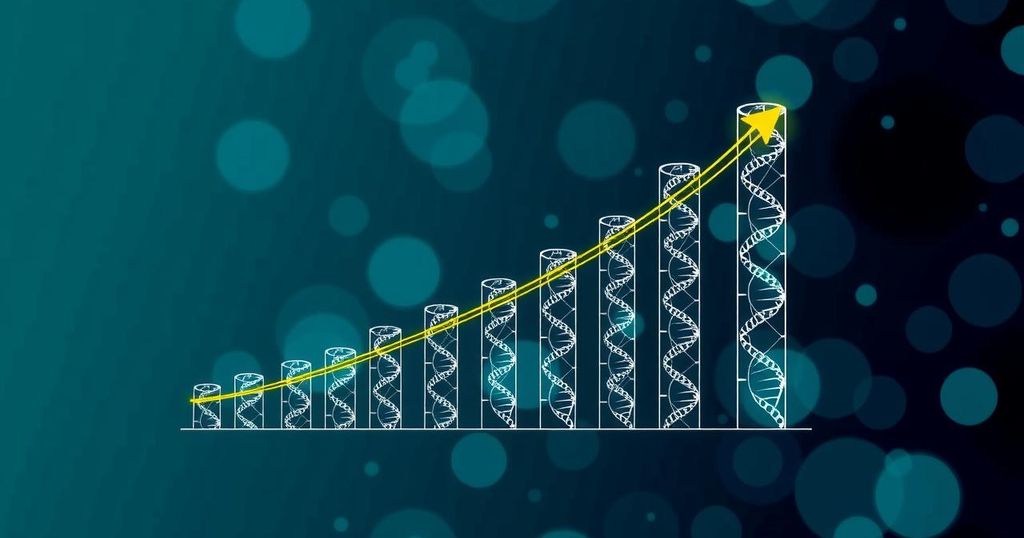Transforming India’s Biotech and Diagnostics Sector: Insights from Merck India’s Rajeev Nair

The biotechnology and diagnostics sector in India is witnessing rapid growth, driven by innovative startups and changing healthcare trends. Merck India aims to bolster this ecosystem through partnerships, advanced research, and sustainability initiatives, while Rajeev Nair highlights the importance of innovation and industry collaboration in improving healthcare.
In recent years, the landscape of the biotechnology and diagnostics sector in India has seen a significant transformation, largely propelled by shifts in disease perception, advancements in healthcare technologies, and heightened health consciousness. Merck India, part of the global Merck Group, is keenly focused on harnessing these trends to enhance the quality of life and contribute to the healthcare sector. Rajeev Nair, the Global Head of Chemistry at Merck’s Life Science business, emphasized the increasing collaboration within the industry and the critical role Merck plays in supporting startups and academic research. Nair noted that the COVID-19 pandemic has accelerated changes in research and development priorities, with a pronounced focus on innovation aimed at improving healthcare outcomes. The pandemic underscored the necessity of building robust healthcare infrastructures and investing in pharmaceuticals and research. Merck is particularly committed to aiding India’s evolving biotechnology landscape by leveraging its extensive expertise in chemistry, biology, and biopharma from research to manufacturing. He underlined that India is one of the fastest-growing economies, with notable contributions from its vaccine and pharmaceutical sectors during the pandemic. The increase in biotech and diagnostics startups is indicative of the rapidly changing ecosystem, and Merck aims to support this transformation by fostering strong partnerships across the pharmaceutical value chain. To achieve self-sufficiency, India must enhance supply chain security, focus on digital transformation, and prioritize sustainability to gain competitive advantages in the global market. Merck’s recent innovations include advanced toolkits and software aimed at accelerating drug discovery while also ensuring improved operational efficiency in laboratories. The company is launching SYNTHIA™, a platform that streamlines synthetic route design, and LANEXO™, an inventory management tool to assist laboratories with digitization and regulatory compliance. Investments have also been made in India to bolster the manufacturing of essential products within the pharmaceutical sector. Lastly, Nair pointed out critical trends that Indian pharma and biotech sectors must embrace, such as sustainability, in light of new global regulations that advocate for greener practices. As India continues to evolve as a crucial player in the biopharma landscape, fostering collaborations between startups and larger enterprises will be vital in driving innovation and achieving formidable growth in the sector.
The rapid expansion of startups in the biotechnology and diagnostics segments in India reflects significant shifts in public health perspectives and technological advancements in the healthcare sector. Key drivers for this change include an aging population, increased life expectancy, and lessons learned from the COVID-19 pandemic, which revealed vulnerabilities in existing healthcare systems. Merck India, aligned with global trends, plans to aid in India’s growth through innovations in life sciences and healthcare, focusing on sustainable practices and collaborative partnerships.
In summary, the emergence of startups in India’s biotechnology and diagnostics sectors presents a unique opportunity to enhance healthcare outcomes. Merck India’s commitment to leveraging its global expertise aims to strengthen the Indian healthcare ecosystem significantly. By focusing on innovation, sustainability, and collaborative partnerships, Merck aspires to contribute to India’s aspirations of becoming a leader in the biopharma space while ensuring the well-being of its population.
Original Source: www.financialexpress.com







